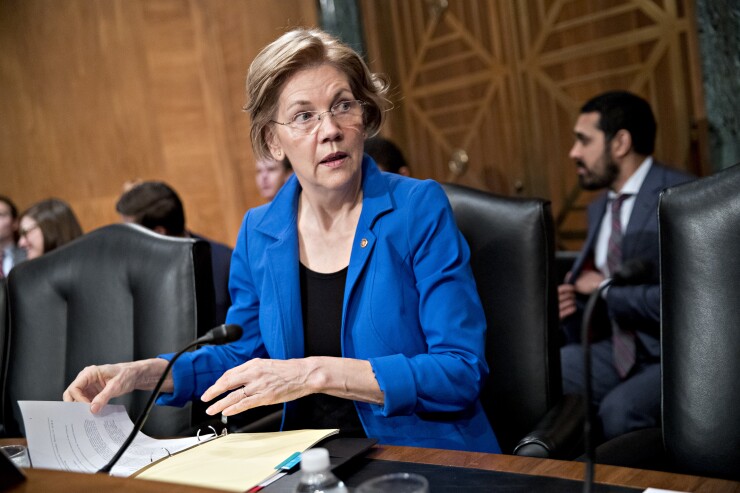WASHINGTON — Sen. Elizabeth Warren, D-Mass., pressed the five largest U.S. retail banks Wednesday on details about what the firms are doing to reduce the effects of the partial government shutdown on furloughed government employees.
Warren, a member of the Senate Banking Committee and potential 2020 presidential hopeful, said in a
“The shutdown is now in its [26th] day — the longest in history — and over 800,000 federal workers have either been furloughed or forced to work without pay,” Warren wrote. “In addition, hundreds of thousands of federal contract workers, businesses that are dependent on these workers, and large and small businesses in need of federal government services are also facing lost paychecks and profits — with some on the brink of financial ruin.”

Warren noted that bank regulators — including the Federal Deposit Insurance Corp., Federal Reserve, Office of the Comptroller of the Currency and National Credit Union Administration — sent
“I agree with these regulators, and was pleased to see many credit unions and banks that serve federal employees act quickly to help them,” Warren said. “But small banks and credit unions should not be the only financial services providers assisting federal workers during the shutdown.”
She also acknowledged that the largest banks are already taking some actions. She noted, for example, that U.S. Bank introduced a “‘low-rate, quick loan product’” for furloughed federal employees; Chase encouraged customers to contact them if they are affected by the shutdown; Wells has announced steps to “‘work with individuals and business banking customers whose income is disrupted as a result of the shutdown’”; BofA has made a client assistance program available to those affected by the shutdown “‘tailored to their specific situation and financial needs’”; and Citi said affected customers may be eligible for fee and interest adjustments as well as loan forbearance, payment modifications or loan modifications.
She asked that the banks detail precisely what services they are offering to affected families by Jan. 21.





